Footprints Beachside Recovery
151 107th Avenue Suite 13
Treasure Island, FL 33706
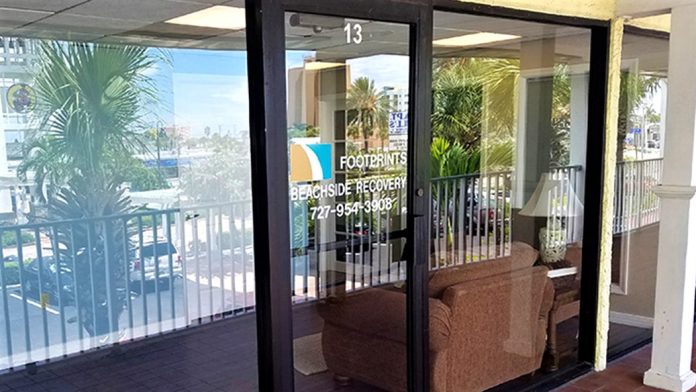
Amenities
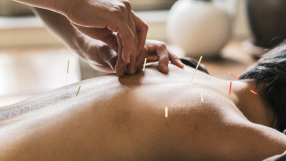
Acupuncture Room
Acupuncture is one of the most popular luxurious and alternative therapies offered by rehabs. An acupuncture r...oom provides benefits like pain reduction, improved sleep, a healthy immune system, and a decrease in anxiety.
Art Therapy
Art and music are mediums that connect with our feelings, making them a great recovery tool during addiction t...reatment. Studies show that combining art/music and drug rehab can have a greater therapeutic impact than drug rehab alone, as you’re able to access parts of your brain and body that you may not have access to during traditional talk therapy. Benefits of art/music therapy include lowering stress and anxiety, promoting healthy neurochemicals, and providing stress relief.
Beachside
When it comes to addiction treatment, there are some undeniable benefits of attending a rehab with beach views.... For clients who connect with the feeling of sand under their feet, the sounds of ocean waves rhythmically crashing against the shore, and the warmth of the sun on their skin, attending a rehab located on the beach offers a unique form of restoration that only nature can provide.
Gym
When paired with cognitive-behavioral therapy, exercise can be an effective tool for overcoming addiction. Dru...g rehabs with a gym offer clients healthy ways to increase energy levels, balance the body’s stress hormone levels, and aid in the brain’s healing process.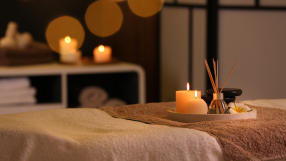
Massage Room
The massage room offers a wealth of benefits as part of an overall evidence-based drug and alcohol recovery pr...ogram. Massage therapy boosts blood flow and flushes lactic acid from the muscles, and the vascular benefits last several days after the massage.
Meditation Room
Yoga and meditation are great activities to support your recovery process during alcohol or drug rehab. These ...therapies have been around for centuries, and they are an effective way to improve well-being. Combining addiction treatment, yoga, and meditation can reduce cravings, improve sleep, relieve anxiety and depression, provide stress relief, promote relaxation, support emotional healing, and improve energy levels.
Music Room
Music can be extremely therapeutic, serving as a valuable healing tool and an integrative feature of a holisti...c treatment plan. A music room offers a large number of outlets, including singing, playing musical instruments, and listening to music.
Oceanfront Views
Research shows that time spent in nature can increase relaxation and improve mental clarity. For those reasons..., many people entering treatment for a substance use disorder can benefit from time spent at a drug and alcohol rehab with oceanfront views.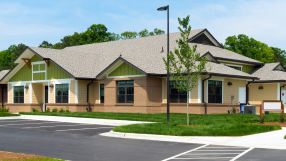
Private Rehab
Private drug rehab provides a comfortable, secure environment that allows you to focus on doing the work to ge...t your life back on track. Benefits include a higher staff-to-client ratio, increased one-on-one time with therapists and healthcare providers, private rooms for clients, and customized forms of therapy.
Private Transportation
Transportation services are designed to ensure your addiction treatment begins and ends successfully by offeri...ng free transportation to the rehab facility, to and from your appointments during rehab, and back home upon program completion.
Rec Room & Activities
Recreational therapy uniquely combines therapeutic interventions with an activity, like horse-riding, hiking, ...wilderness therapy, basketball, tennis, or a full workout. Benefits of recreational therapy include providing a healthy way to work through the emotions of recovery, learning to build and maintain relationships, improving communication skills, and building self-esteem.
Residential Setting
Residential drug rehab provides the comforts of home with the therapeutic support needed to successfully recov...er. Benefits of an inpatient program include increased safety, a higher success rate, and the time and distance given to focus on recovery. Residential drug rehabs are often the preferred method of treatment, as they can be tailored to meet specific needs, offer focused therapeutic care, and provide the necessary tools to sustain recovery.
Yoga Studio
Treatment centers with a yoga studio offer a special form of holistic therapy during the recovery process. Yog...a boosts mindfulness, a sense of calm, and healthy reflection during drug rehab via breathing exercises, stretching, and a progression of specific postures.Addiction Treatment Programs
Adult Program
Treatment at an adult program in Florida addresses the needs of each individual as they work toward recovery. Programs are designed for men and women ages 18 and up, and include a variety of treatment protocols to match the severity of the addiction, type of substance, and personal situation.Alcoholism
Each alcohol rehab in Florida offers unique amenities and approaches, but most follow the same general guidelines. Treatment includes detox, rehabilitation, and maintenance. This is a proven approach to provide the greatest results for long-term recovery.Cognitive Behavioral Therapy (CBT)
Cognitive behavioral therapy in Florida helps people in treatment to revisit painful thoughts and memories and learn new ways to cope with them. These newly-learned techniques replace substance use and help the individual maintain sobriety.EMDR Therapy
EMDR Therapy is a neurobiological treatment modality used to address trauma disorders and related mental and behavioral health challenges. Short for eye movement desensitization and reprocessing, EMDR is designed to help clients cope with distressing memories and emotions, including fear, sadness, and anger. EMDR may help clients in addiction recovery manage the psychological and emotional triggers that contribute to substance misuse and/or addiction relapse.Fitness Therapy
Fitness therapy is an evidence-based complementary approach to addiction recovery and mental health care. Based on mounting scientific evidence of the benefits of physical activity in improving mood, enhancing clients’ sense of wellbeing, and decreasing depression and anxiety, fitness therapy encompasses a wide spectrum of intensities, from gentle yoga, qigong, and tai chi to weight training, kickboxing, and other highly physical activities.Hypnotherapy
Hypnotherapy is an evidence-based complementary approach to addiction treatment in which clients enter an induced state of deep relaxation. Once the client has entered this hypnotic state, the hypnotherapist uses various techniques, including guided imagery and positive affirmations, to help clients “unlearn” negative behaviors, such as substance misuse, and adopt healthy ones. The approach supports clients’ long-term mental, physical, and emotional wellbeing and reduces their risk of relapse by tapping into the power of the subconscious mind.LGBTQ Friendly Rehab
Often, women who have a substance use disorder also have a co-occurring disorder. Women’s rehab in Florida often addresses both the addiction and mental health disorder with dual diagnosis treatment.Men's Rehab
Gender-specific addiction treatment gives men who are struggling with substance use disorders a connection point to other men with similar struggles. This common ground can make a huge impact on men’s rehab in Florida.Rehab For Veterans
Veteran’s rehab in Florida offers programs for alcohol and substance use disorders specifically for Veterans. Treatment focuses on the needs of this population that differ from others, such as combat trauma and adjustments to civilian life.Opioid Treatment
Opioid rehab in Florida provides the care you need to help you safely and comfortably navigate a path to recovery. Treatment addresses both emotional and physical aspects of addiction, offering individualized tracks and custom programs.Senior Drug & Alcohol Rehab
If you're over the age of 65, elderly rehab in Florida gives you the opportunity to be in a treatment program with your peers. This tends to be helpful for older adults because they can receive mutual support and acceptance from their peers. These programs are specifically designed for seniors.Sound & Music Therapy
Sound & Music Therapy are complementary treatment modalities frequently used in addiction recovery to support clients’ physical, mental, and emotional wellbeing through the use of auditory stimuli, from nature sounds and Tibetan singing bowls to drum circles and rhythmic melodies. The treatment is believed to reduce symptoms of anxiety and depression and may offer relief for those experiencing chronic pain, which can decrease clients’ risk of addiction relapse.Women's Rehab
Often, women who have a substance use disorder also have a co-occurring disorder. Women’s rehab in Florida often addresses both the addiction and mental health disorder with dual diagnosis treatment.Teen & Adolescent Program
Young adults often develop addiction for different reasons than older individuals. That’s why a young adult program in Florida focuses on the unique pressures, needs, and challenges faced by young adults.Levels of Care
Detox & MAT
While each drug rehab in Florida is unique, most programs begin with detox. This process can last up to seven ...days. During that time, addictive substances are slowly removed from your system. Medication is often used to alleviate withdrawal symptoms.Inpatient Rehab
Inpatient drug rehab in Florida allows you to receive round-the-clock supervised care while living at the faci...lity. A combination of treatment interventions is typically offered, including individual and group therapy, nutritional counseling, experiential therapies, and medication management.Partial Hospitalization Program (PHP)
Drug rehabs in Florida offering partial hospitalization programs (PHPs) allow you to live at home while still ...receiving care at a treatment facility. As a type of outpatient treatment, PHPs typically require an average of five to seven visits a week, ranging from four to eight hours in length.Outpatient Rehab
Outpatient rehab in Florida focuses on relapse prevention and long-term recovery. It typically includes severa...l counseling sessions per week as well as membership in a support group such as NA or AA. This treatment can last several weeks or several months, based on your ongoing needs.Aftercare & Alumni Program
During initial rehab treatment, you learn how to get sober. Aftercare rehab in Florida helps you learn how to ...stay sober. Through ongoing counseling, support groups, and life coaching, you’ll develop skills to maintain sobriety as you live a successful life in recovery. This support may last up to a year or more, to keep you on the right track.Dual Diagnosis & Mental Health
If you are struggling with both an addiction and a mental health disorder, treatment for dual diagnosis in Flo...rida is necessary for successful recovery. This multidisciplinary approach treats both substance abuse and co-occurring disorders such as bipolar disorder, eating disorders, depression, or anxiety.Drug & Alcohol Intervention
Intervention services in Florida can help you plan an intervention, facilitate the intervention, provide inval...uable resources you and your loved one, and assist with executing a treatment plan through a qualified drug rehab in Florida. These services are often key to getting a loved one on the path to recovery.Accreditations

State License #:
26-1225470Insurance
 Financial Aid
Financial Aid
If you require financial assistance for alcohol and drug rehab in Florida, financial aid may be available. Fin...ancial aid options include grants, scholarships, non-profit programs, personal funding, and health insurance programs to help you manage the expense of substance abuse treatment.
 Private Insurance
Private Insurance
Private insurance coverage helps with the cost of alcohol and drug rehab in Florida; however the extent of cov...erage may depend on your rehab insurance policy and if the treatment center is in their network. It's possible you may need to pay co-payments or co-insurance fees. Check with your insurer for more information.
 Self-Pay Options
Self-Pay Options
Choosing self-pay options for alcohol and drug rehab in Florida means you are personally responsible for payin...g some or all of the costs of treatment. Examples include paying in cash, using a credit card, or taking out a personal or medical loan.Contact Footprints Beachside Recovery

Location Details
Other Nearby Facilities

950 N Federal Hwy #216
Pompano Beach, FL 33062
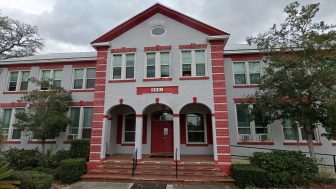
2981 Parental Home Road Building 600
Jacksonville, FL 32216

900 54th St
West Palm Beach, FL 33407
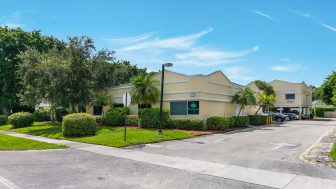
1000 Northwest 15th Street
Boca Raton, FL 33486